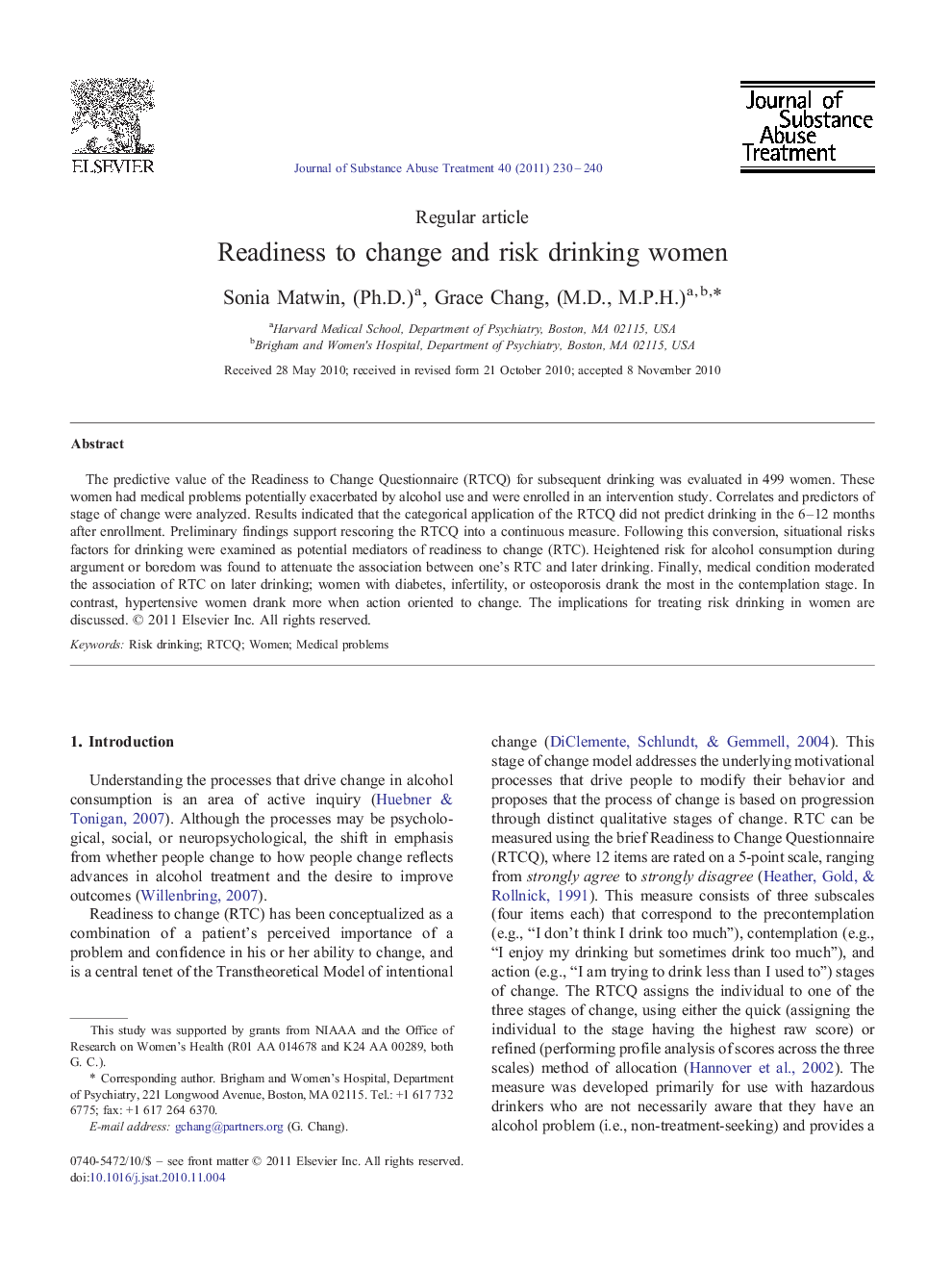| Article ID | Journal | Published Year | Pages | File Type |
|---|---|---|---|---|
| 329772 | Journal of Substance Abuse Treatment | 2011 | 11 Pages |
The predictive value of the Readiness to Change Questionnaire (RTCQ) for subsequent drinking was evaluated in 499 women. These women had medical problems potentially exacerbated by alcohol use and were enrolled in an intervention study. Correlates and predictors of stage of change were analyzed. Results indicated that the categorical application of the RTCQ did not predict drinking in the 6–12 months after enrollment. Preliminary findings support rescoring the RTCQ into a continuous measure. Following this conversion, situational risks factors for drinking were examined as potential mediators of readiness to change (RTC). Heightened risk for alcohol consumption during argument or boredom was found to attenuate the association between one's RTC and later drinking. Finally, medical condition moderated the association of RTC on later drinking; women with diabetes, infertility, or osteoporosis drank the most in the contemplation stage. In contrast, hypertensive women drank more when action oriented to change. The implications for treating risk drinking in women are discussed.
